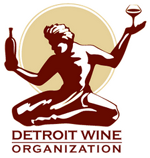The new year brings 365 fresh opportunities to learn about wine. Whether you’re a connoisseur or you’ve recently discovered the world of vino, the Detroit Wine Organization hopes to spend this year expanding your knowledge and enjoyment of the glorious grape. Here are some FAQs to get you started.
Is all white wine made from white grapes?
Surprisingly, no. Wine gets its color from the skins of the grapes used in its production, but even a wine made with red grapes can retain a light hue if the grape juice does not sit with the skins for very long. Champagne, for instance, very often includes juice from the red Pinot Noir grape.
What’s a “Meritage?”
Much in the vein of the Italian Super Tuscans, the term Meritage — pronounced like “heritage” — was coined by American vintners who were looking for an appropriate tag for their experimental Bordeaux-style blends. These wines didn’t qualify for a varietal-specific designation but were too high-quality to be relegated to the status of table wine. Watch for an upcoming 60 Second Wine Course for more information on Meritage wines.
What does it mean if a wine is “corked”
A “corked” wine is one that has been tainted by TCA, a fungus found in natural cork. A musty or chlorine-like aroma and flavor ruins the wine and is usually detectable by scent (don’t bother smelling the cork, give the wine itself a good whiff). Experts believe that up to 5% of all wine may be afflicted with this fungus, part of the reason synthetic corks and screw tops have been gaining in popularity.
What’s phylloxera?
Phyllloxera is a tiny insect that attack grapevines, sucking the nutrients from its roots causing a dramatic decline in the volume of resulting grapes. Native American rootstocks are more resistant to this pest, while European vines are much more vulnerable. A phylloxera infestation in the late 1800s caused widespread devastation of European vineyards.
Why do you decant wine?
Decanting is done for two reasons: to separate wine from any sediments built up during cellaring; or to expose a younger wine to more air, a process that “opens” or releases more fruit in tannic or “tight” wines. In the case of the former, you should pour the wine very slowly into the decanter, stopping when you start to approach the sediment at the bottom. The latter requires much less finesse, in fact the more the wine is agitated in its decanting process, the more air it will be exposed to.
And a key for some of the trickier wine-world pronunciations:
Rosé


Leave A Comment